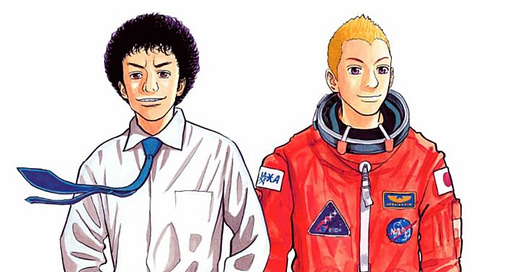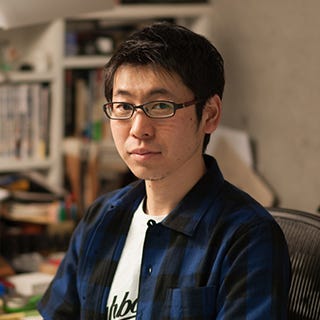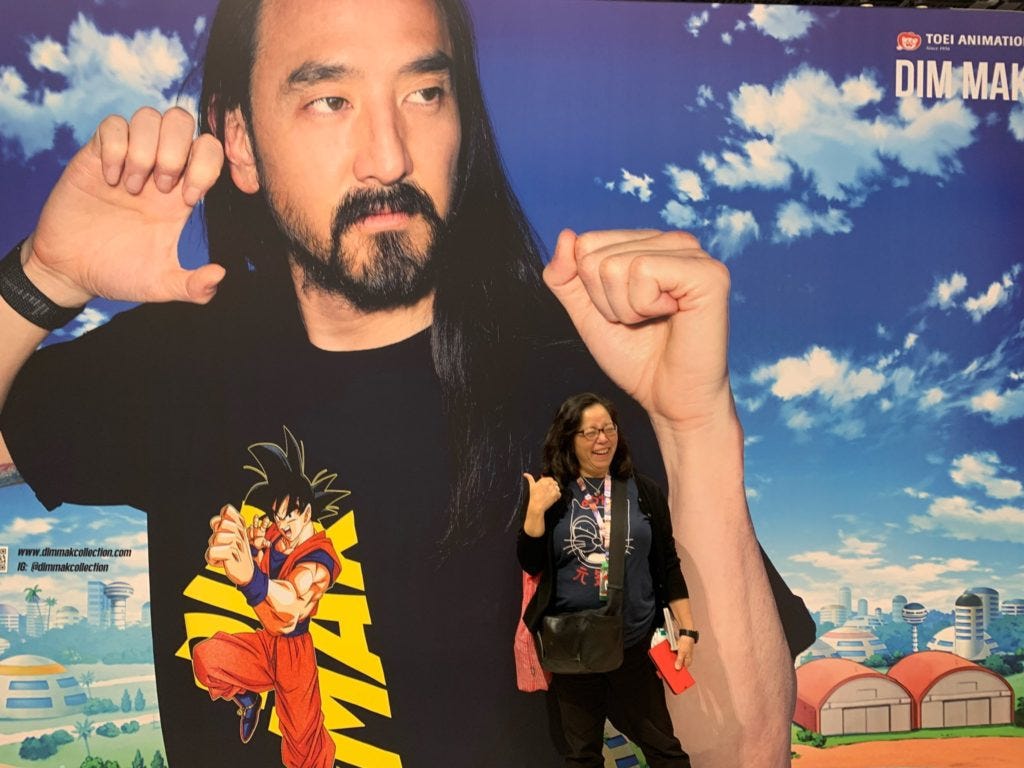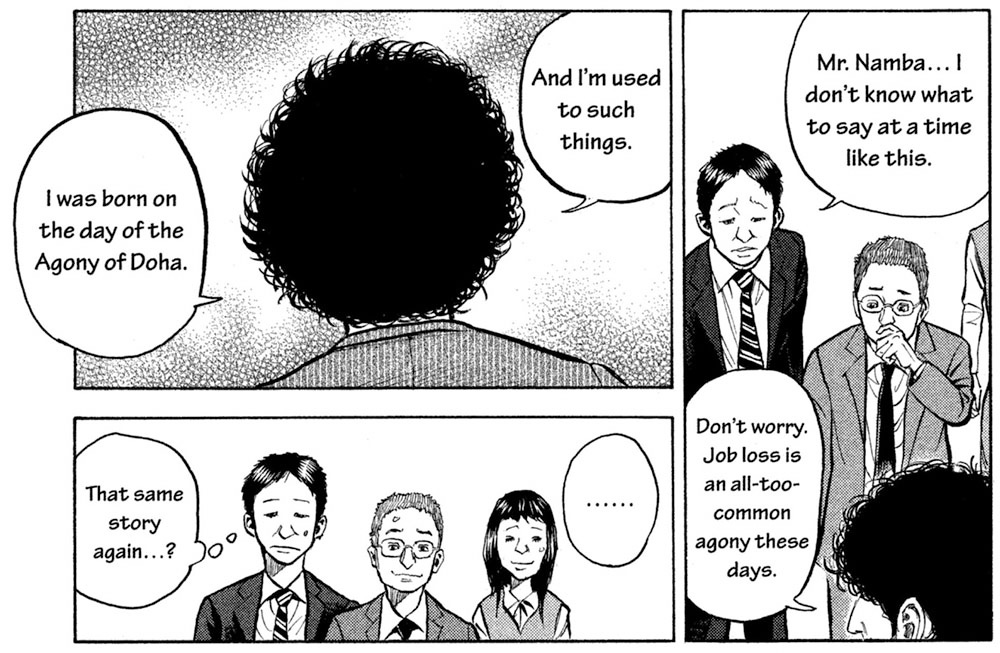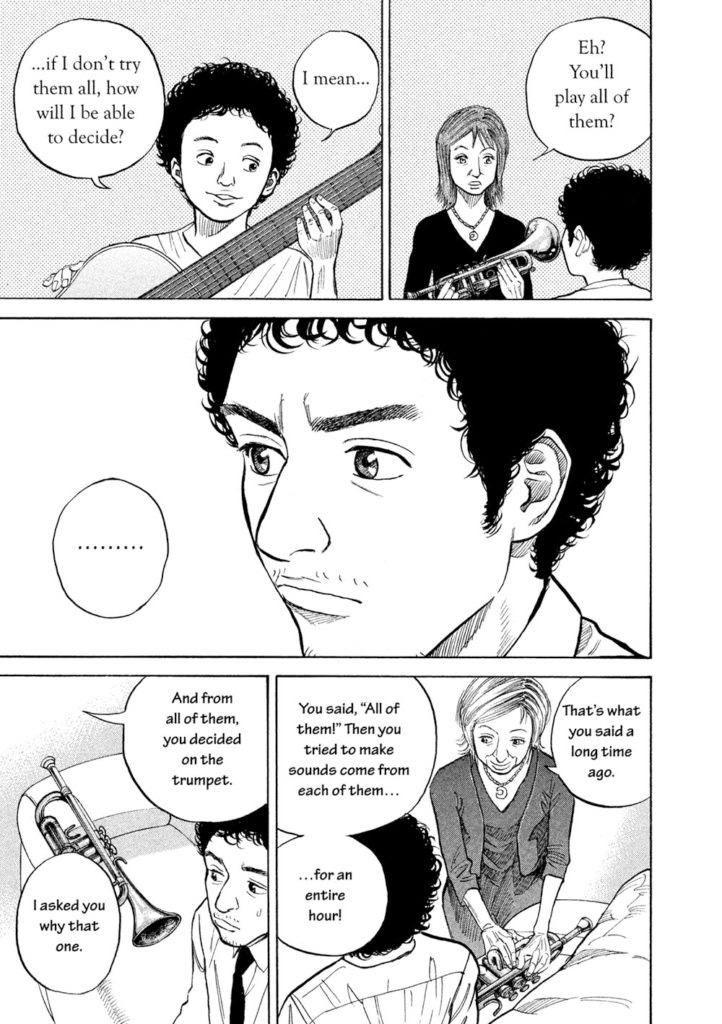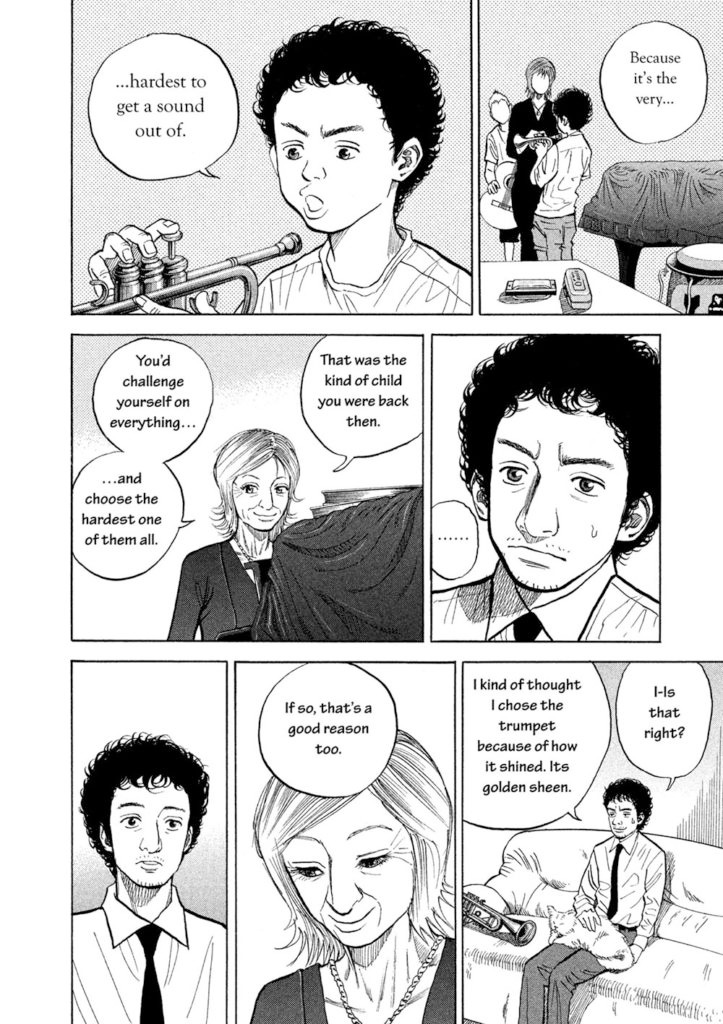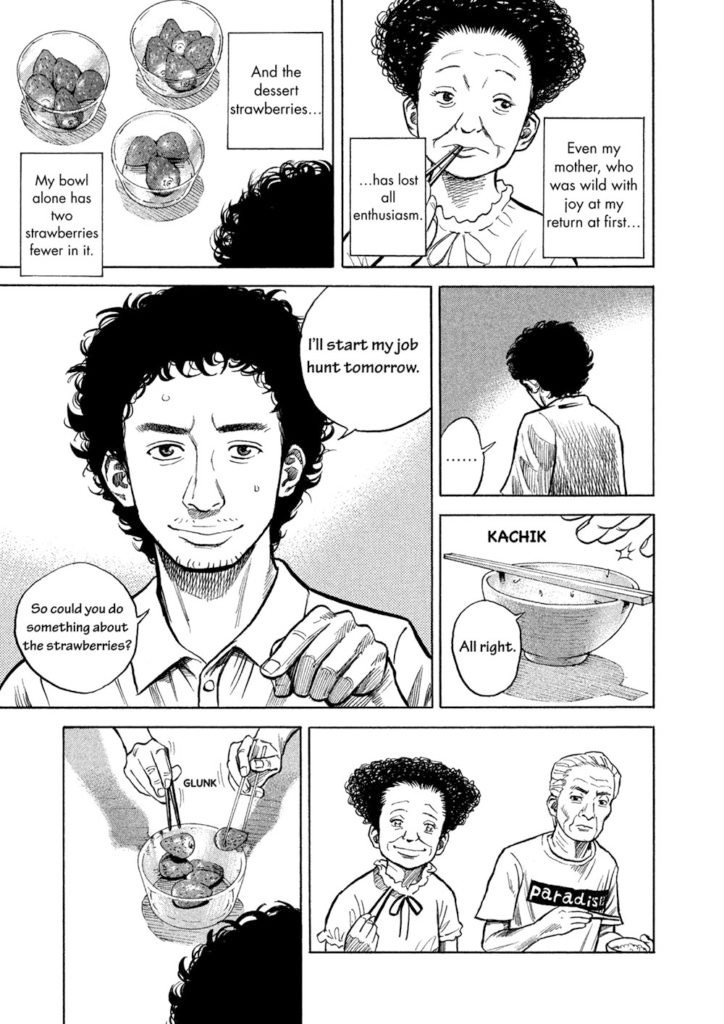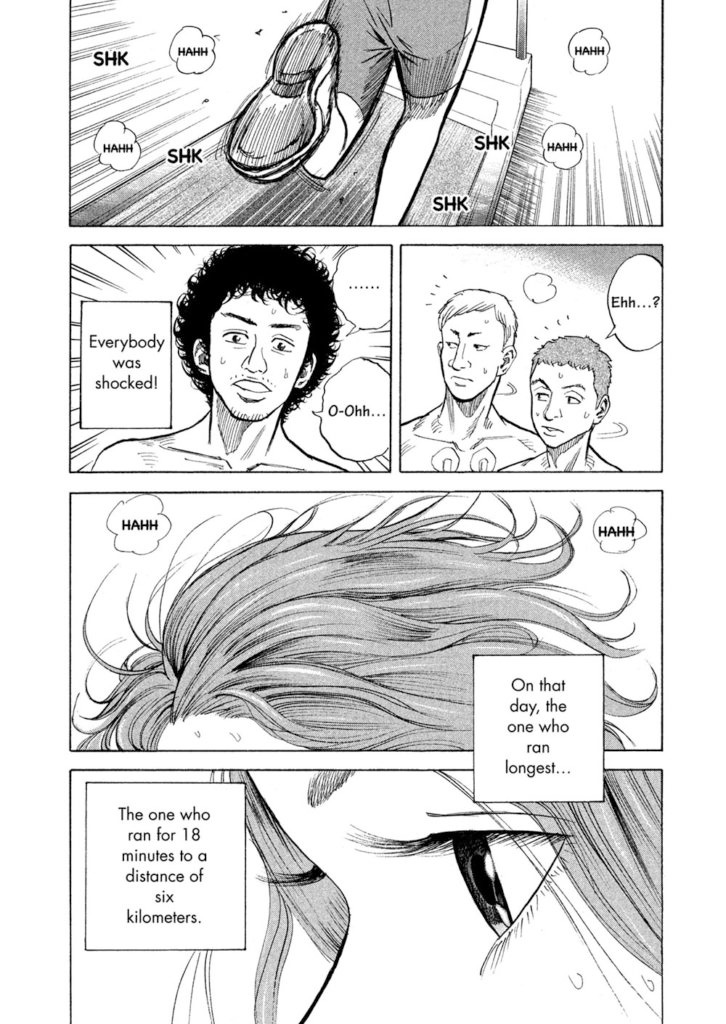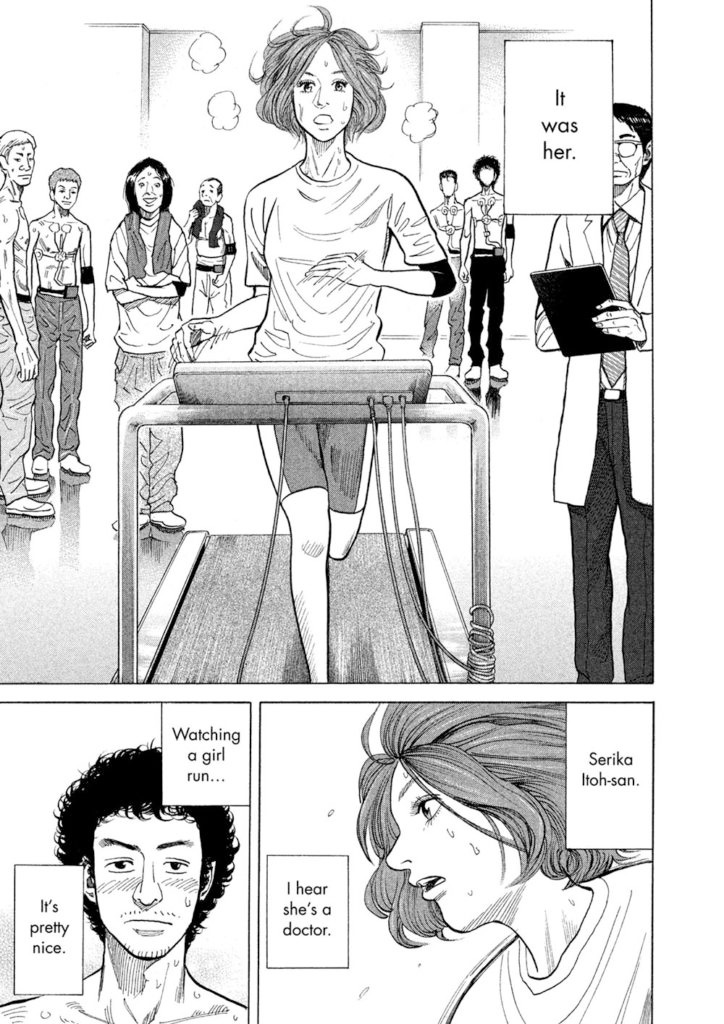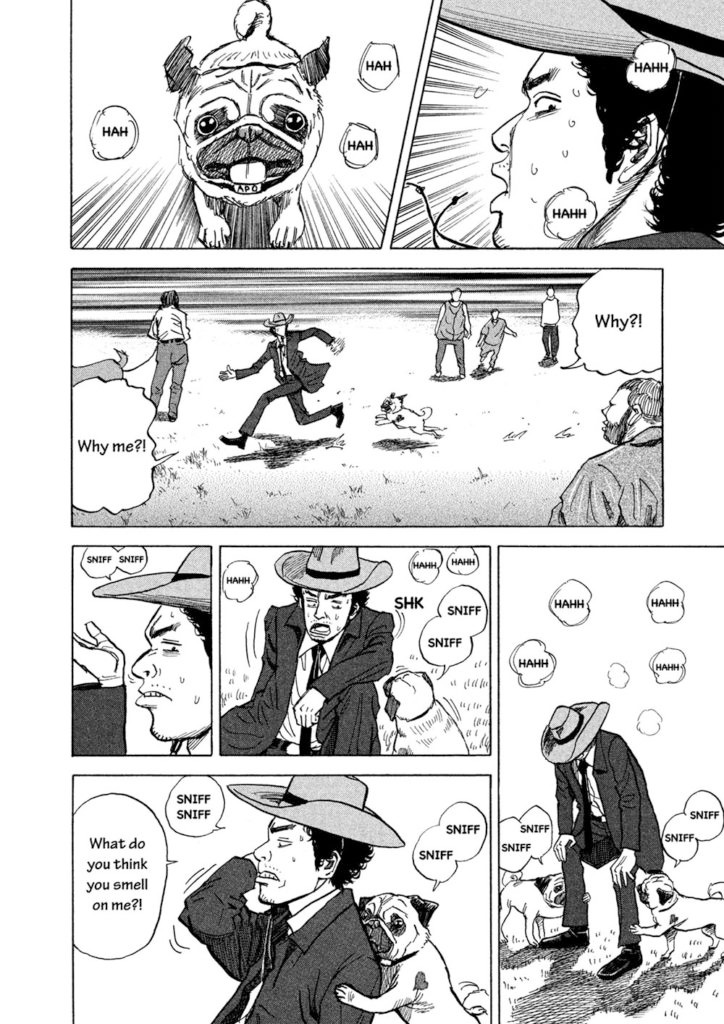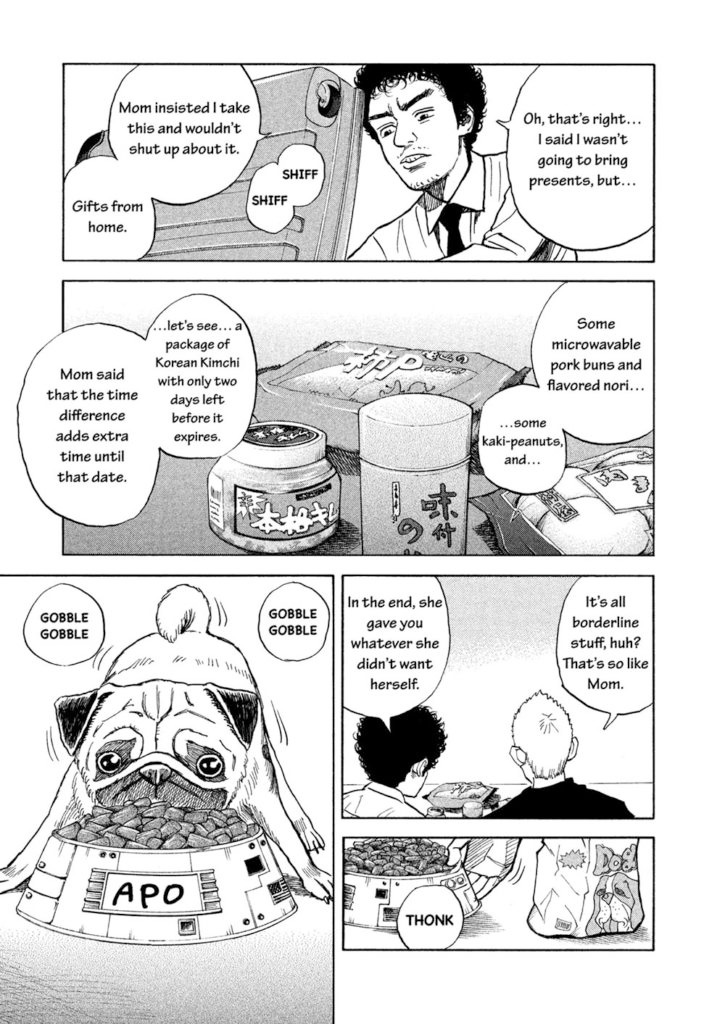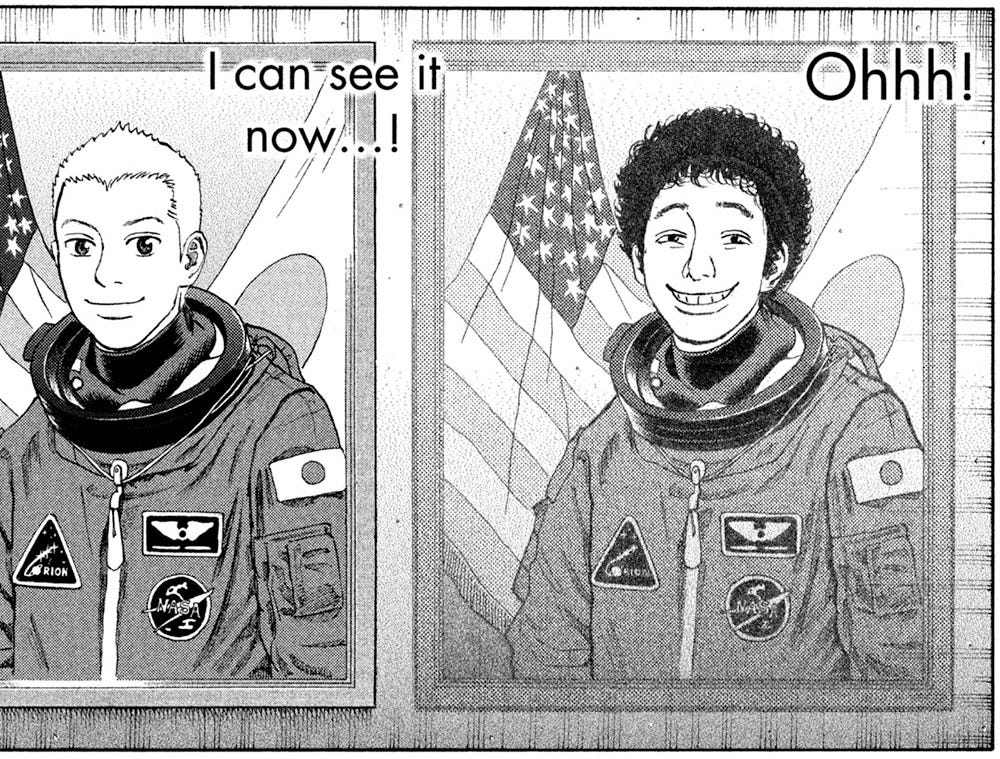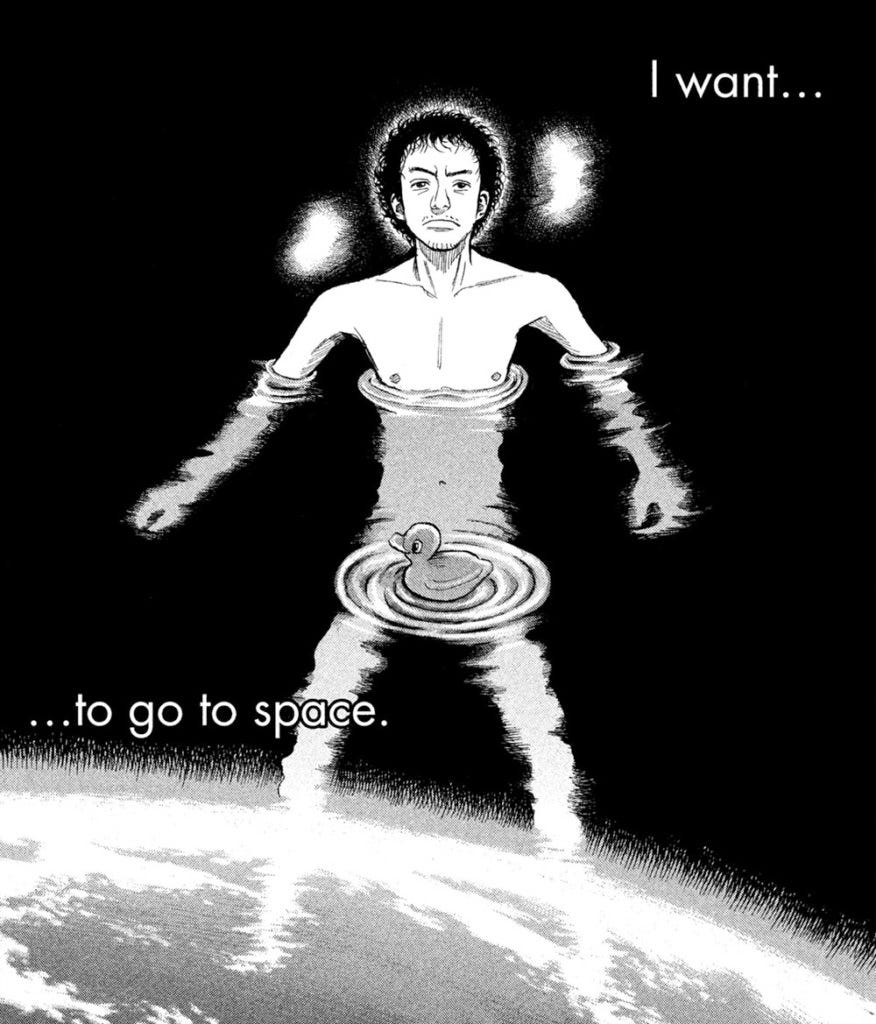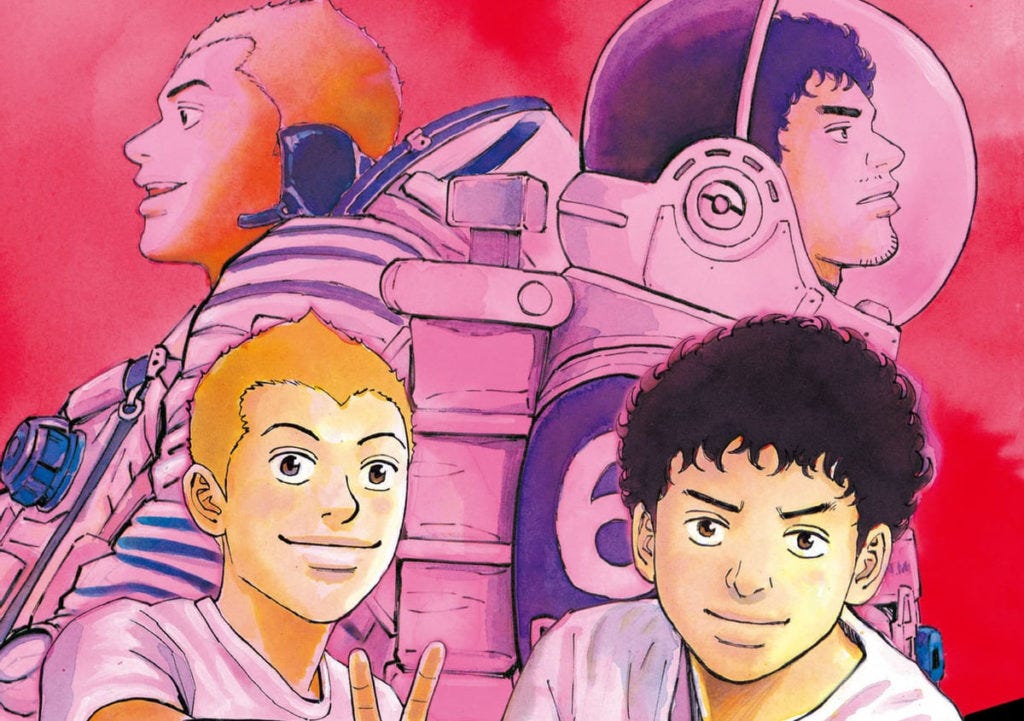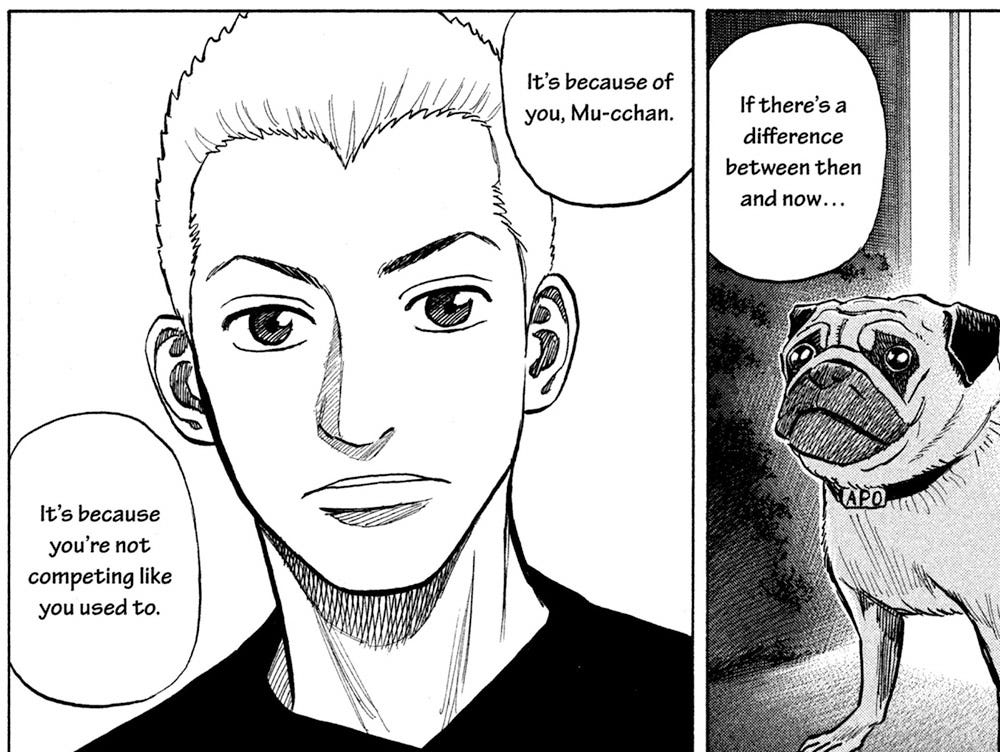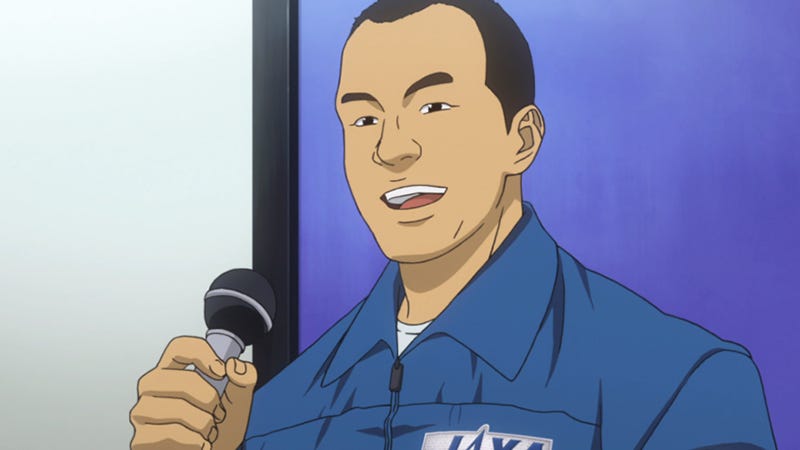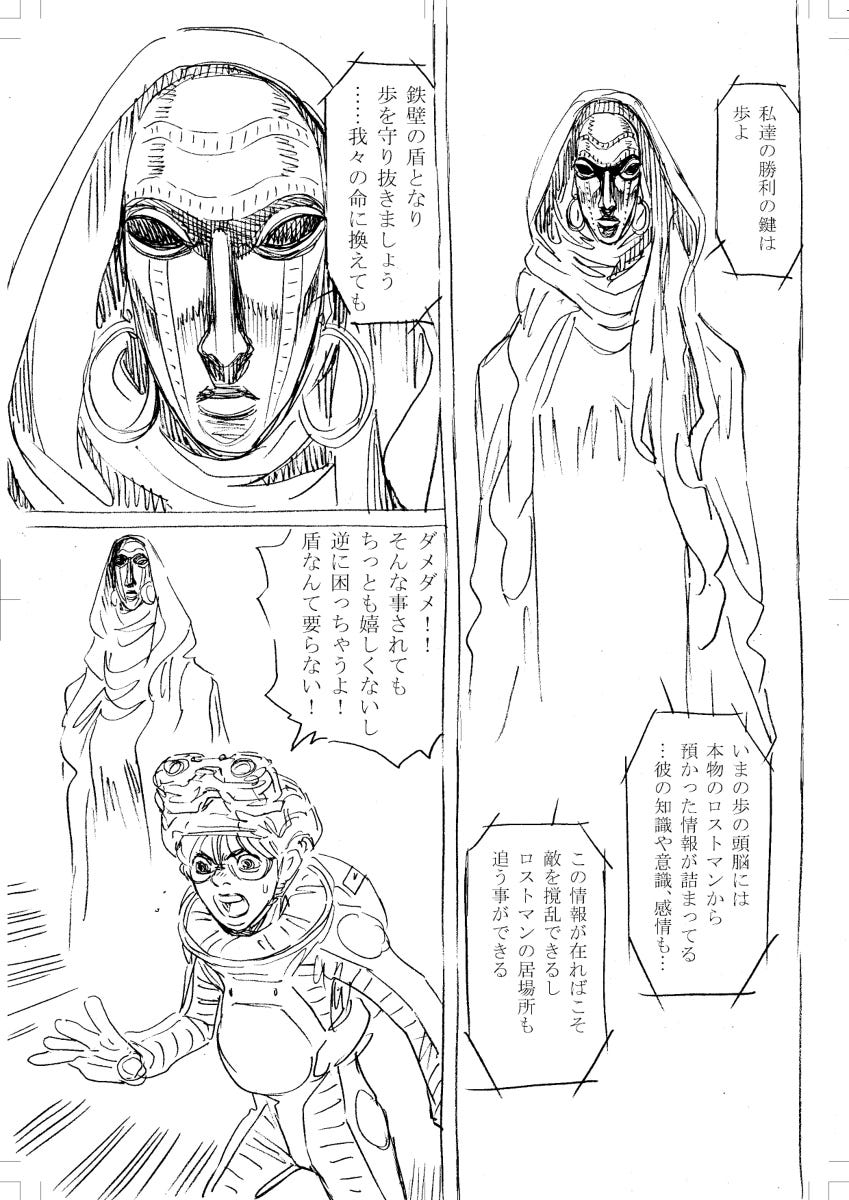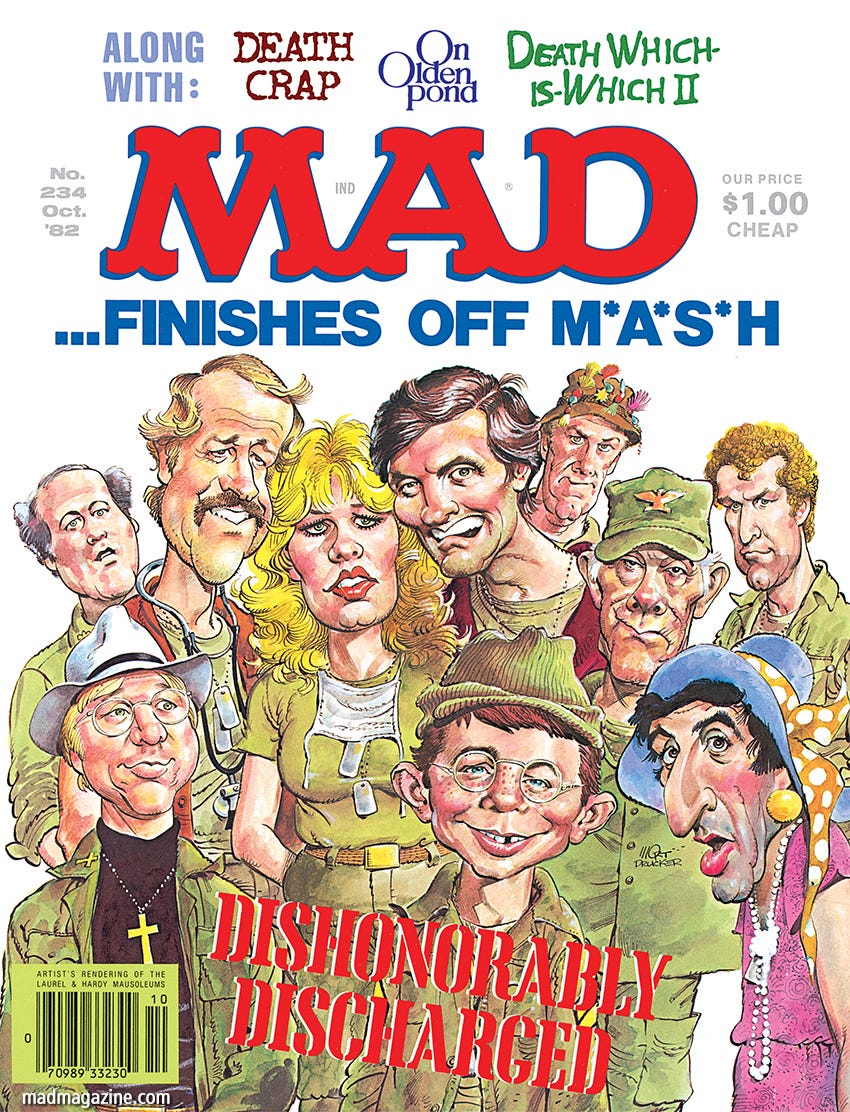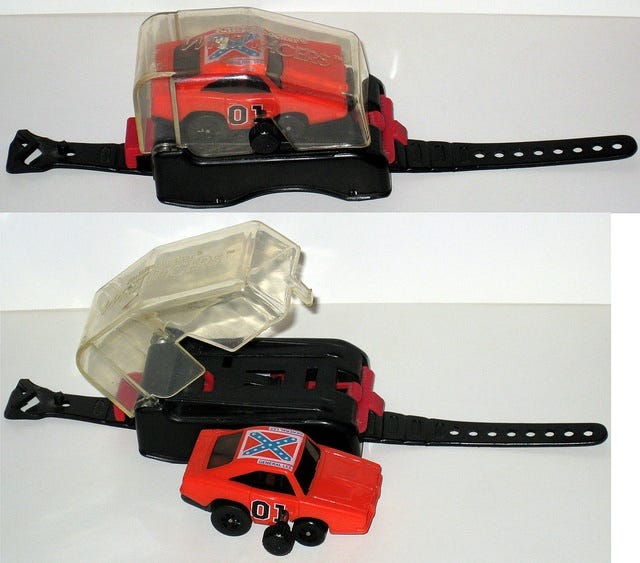PODCAST - Ep. 80: Space Brothers vol 1, by Chuya Koyama
This week’s episode introduces us to Space Brothers, a popular, award-winning seinen manga dramedy series about two brothers who have space exploration ambitions. Also -the debut of M*A*S*H-splaining!
SPAAAAAACE BROTHERS! It's the story of two young brothers who promise each other to join Japan's space program and journey to the moon, to Mars, and beyond! Except one of them just got fired from his job for headbutting his jerk boss. What will happen in this episodic dramedy of a manga series?
And speaking of dramedys, David takes the "joke" and makes it very real, as at 49:22 we do an episode of our new one-episode(?) podcast M*A*S*H-SPLAINING! We all get together and talk about the 40 year-old television series M*A*S*H, and what it means to us. You never know what to expect on this podcast!
Listen and Subscribe to the Podcast:
Google | Apple | Stitcher | RedCircle | Amazon | Radio Public | PocketCast | Spotify
IN THIS EPISODE:
00:00 Space Brothers vol. 1 by Chuya Koyama
49:22 M*A*S*H-Splaining - A podcast about the TV Show M*A*S*H.
1:09:25 Shout-outs! Medical manga, a 'magical' documentary, throw-back TV and a bit of advice for happier living!
Space Brothers Vol. 1
By Chūya Koyama
There are no translation, lettering, or editing credits listed for this series.
Published by Kodansha. Available in print / digital - https://kodansha.us/series/space-brothers/
Audio editing by David Brothers. Show notes by Christopher Woodrow-Butcher and Deb Aoki
Before We Get Started:
Chip had a mic problem this episode, and had to use his laptop mic so his audio is a little echoey. Sorry for this! We fix it for the M*A*S*H-Splaining segment and for future episodes!
Also Deb was at her mom’s house in Hawai’i, and her mom keeps birds, and so sometimes there are some chirping birds. Lol.
Born on September 30th, 1978 in Kyoto prefecture, Chuya Koyama does not work under a pen name, which is surprising! A lifelong fan of manga, he took the eminently sensible decision to get a desk job after school as an office worker at a design company, submitting manga to contests on the side. Koyama took home the top prize for the 14th Manga Open Jury Award with their short GGG, and then won the same award the next year for his short Gekidan Jets. He started Harujan, a short series that ended quickly, then reworked the GGG short into a one-volume book.
After that, they went right into drawing Space Brothers as a weekly series for Kodansha’s flagship seinen weekly manga magazine, Morning. New chapters of Space Brothers has since slowed to monthly releases, although I can’t quite tell when that change took place… perhaps 2020 maybe? Check out Kodansha’s interview with Chuya Koyama for more.
Oh, and Koyama has officially had an asteroid named after him, that’s pretty cool.
Space Brothers, as we discuss this episode, became a cultural phenomenon in Japan. The series debuted in 2007 in Morning Magazine, and continues to this day. All 41 volumes of the series are currently in print and never go out of print, which is something that North American comics fans AND North American manga fans can no longer take for granted about their favourite series’. A 42nd volume will be released around Christmastime this year. Many of the series’ later volumes were released as special editions, usually with bonus material like art books, DVDs, and t-shirts, and other promotional extras (not cheap!). The manga also got a special “all-color edition”, where the series is being released digitally in full color.
In 2011, Space Brothers won both the 56th Shogakukan Manga Award in the general category, and the 35th Kodansha Manga Award. It also has taken the Reader Prize of the Tezuka Osamu Cultural Prize, and was nominated for the Manga Taisho twice. Basically, it did a pretty good run of awards, right around the time of the anime series (2012-2014, running 99 episodes) was airing.
[Deb:] You can watch the Space Brothers anime series on Crunchyroll!
Here's the trailer from Sentai Filmworks (who also has several collections of the Space Brothers anime available on DVD/Blu-Ray)
The anime actually has a really cool ‘first’ too, the 31st episode of the anime features the first piece of voice acting to be recorded in space, performed by astronaut Akihiko Hoshide aboard the International Space Station. That’s… weirdly uplifting actually. That fills my otaku heart with pride.
Just after the completion of the anime, the live-action Space Brothers live action film was released (May 2014), with a theme song by, I shit-you-not, Coldplay.
We’re going to get into a few more examples of Space Brothers as a cultural phenomenon a little further down in the notes, but, this is probably one of the bigger manga we’ve ever covered on the podcast, even if as a digital-only title, while also being one of the smaller/less-hyped up ones we’ve covered here in North America. And don’t worry, we talk about that too.
For more, you can check out the official Space Brothers website, and the official Space Brothers Twitter account, @uchu_kyodai.
00:00 Here’s a description of Space Brothers from Kodansha:
The year is 2025, the older brother decides to trust himself just one last time. It’s the start of an adventure that aims for Mars via JAXA in the town of Tsukuba! The official Space Brothers manga is ready to launch!
Two brothers looked to the starry skies as children and made a promise. And now, in the year 2025, the younger brother, Hibito, is carrying out his promise. He is an astronaut who has been selected as a crew member for mankind’s first longterm base on the moon. Meanwhile, the older brother, Mutta, has just been fired from his job and is unemployed. A text message from Hibito sends him applying to be an astronaut and shooting for the stars!
-Kodansha
02:00 So did David pick Space Brothers for the podcast because it’s got his last name in it? Yeah, sorta. We’re a straight-shooting podcast.
02:40 Hahaha oh wow. I royally messed up here. I thought Aoki had connotations of mountain, honestly, but it does not. It means “blue tree,” and generally comes from central Japan and the Ryukyu islands. My joke does not make any sense at all, I got confused because the author’s last name is Koyama which implies mountains, and if I could go back in time I would beg David to cut this from the podcast. But I cannot. So: Sorry all, Sorry Deb!
02:50 Deb’s joke, meanwhile, of taking selfies with images of “cousin” Steve Aoki (no relation) is actually a banger.
07:55 The lead character, Mutta, is born under a bad sign, “an unlucky star.” The opening pages show this pretty hilariously…
…and as Deb points out later, the series is subtly about working through your preconceived notions of yourself, who you are now, and who you used to be. The trumpet scene where Mutta is reminded of his past achievements is really good!
10:06 The strawberry sequence is honestly one of the cleverest and best in the book. Going from having two less strawberries than everyone, to getting one from each parent and having it even out. Good stuff, Koyama-sensei!
17:50 As pointed out, this series centers on Mutta and his relationship with his brother Hibito, but has a pretty wide cast including their parents, their silly dog, and the other astronaut candidates, including the standout female character Serika. Deb points out that it’s somewhat rare in seinen manga for a female character to be very well-rounded.
And she eats a lot -- as a character trait, that's pretty fun.
18:50 The dog is adorable and showing him chase Mutta in the park is goofy as hell.
And the kimchi gag in that chapter is pretty good too.
21:00 Funnily enough, I use the television show Law & Order as an example of a pick-up-and-watch, always-on television series that you can drop in on with more-or-less any episode, kinda forgetting that this was also the M*A*S*H-Splaining episode. M*A*S*H, which was kind of originally set up as a situation comedy (a.k.a. sit-com) was like that too. After this episode was recorded, I happened on this episode of Last Week Tonight with John Oliver that's all about Law & Order that's pretty interesting. Maybe he’ll tackle M*A*S*H next too.
22:00 The Rivals appear! They’re just kind of subtle dicks, but it’s not that big a deal. They’re not manga villains, they’re just everyday unpleasant people you might have to deal with.
23:30 Mutta’s expressions are HIDEOUS and HILARIOUS.
The mangaka is not kind to him.
23:45 Referencing the manga A Journal of My Father by Jiro Taniguchi, which was covered in episode 22.
24:10 “The magazine that respects your intelligence!” That was the tag-line on the 1961 comic book series Amazing Adult Fantasy, published by Marvel Comics. The series begun at #7, taking over the numbering (and therefore the slot on the newsstand) of Amazing Adventures. But as comic book nerds know, Spider-Man made his debut in Amazing Fantasy #15, the last issue of the series. They dropped the ‘adult’ from the title, and also the slogan “The Magazine That Respect Your Intelligence,” and that is actually a savage self-own for Spider-Man, a notoriously low-self-esteemed hero.
25:02 Subtle hair-twirling moment in the mirror by Mutta’s friend Kenji is a good indicator of depth of character.
28:00 Character designs and names: Moon and Sun, dark and light, pessimist and optimist character designs are a mainstay of manga storytelling. Deb references Hinata (sun) and Tsukishima (moon) two characters with opposing personality types in Haikyu!, a volleyball manga from Shonen Jump, but we’ve also talked about this duality in reference to boy’s love manga, which features more duality including all of the above, but also ‘tops’ and ‘bottoms.'
You can see the difference in how the characters interact when they finally meet at the end of volume 1: “You need to be more competitive, now you’re boring.”
At first glance, this scene seems to be about the younger brother Hibito trying to motivate Mutta, that this tough talk is for his older brother's benefit. But as we find out later, it's actually Hibito telling Mutta what HIBITO needs.
31:00 Is Space Brothers an explainer manga? It is, but it’s soooo subtle, that Chip doesn’t think so. I think that might be cultural?
In N. America, we're regularly exposed to a lot of NASA stuff. The whole ‘getting ready to go into space’ sequence, from The Right Stuff to Armageddon to The Simpsons, its baked into English-language pop culture, but might not be as big of a thing in Japan.
32:30 The Japan Aerospace Exploration Agency, or JAXA, was formed in 2003, just four years before this manga began serialization. It was formed as a governmental organization as the result of a merging of three previously independent organizations. This may have reinvigorated the Japanese public’s interest in space exploration. As Deb mentioned, in 2007 (when this manga began serialization), 2025 was both close enough, and just far-off enough in the futuree, to give this series some wiggle-room, as far as depicting events and happenings around the space program and Japanese participation in space exploration.
33:30 That said, I don’t think it can be understated just how big Space Brothers became, and the effect it had on the Japanese public and their hunger for space exploration. Just this summer, there was a co-branded cafe space set up by Space Brothers, JAXA, and Nescafe in Harajuku.
While real-life Japanese astronaut Soichi Noguchi actually appeared in the Space Brothers anime in 2012, his 6-month trip to the International Space Station in 2020 was supported by… Space Brothers. You’ve gotta read this article, the scale of this manga…
Meanwhile, the big promotion I remember from my visits was this collaboration between Space Brothers, JAXA, and the convenience store chain Family Mart, which included goods from the manga and movie adaptations, television commercials, and more. Getting nation-wide store-branding at Family Mart is a huge deal, those shops are everywhere in Japan. Here’s some of the products you could buy:

41:30 The screw-loose moment in the manga is a very good little moment, sort of like the round chairs too-far away from the tables in Men In Black with Will Smith.
43:40 We’ve all been there – face down on your parents’ futon.
47:20 Closing out this episode, here’s an image from the OTHER manga about the moon that we read this season, Yauo Otagaki’s Moonlight Mile. They’re very different works, but it was a fun episode, go check it out.
[Deb:] I’m shocked that we never brought up Twin Spica in this episode, another manga series about chasing the dream of going to space as an astronaut, told through the eyes of a young girl. It’s available in print (although quite out of print) or digital via Kodansha/Vertical.
49:22: THE BREAK
49:30 M*A*S*H-SPLAINING
[Christopher:] M*A*S*H (which stands for Mobile Army Surgical Hospital) is a comedy/drama television series that aired from 1972 to 1983. It is set during the Korean War, from 1950-1953. The last episode of the series was the most-watched television broadcast in American history until 2010 (when it was surpassed by the Super Bowl LXIV broadcast). The “Goodbye, Farewell and Amen” episode is still the most-watched show of any scripted television series. At the time, it got 103 million viewers and 60%+ Nielsen audience share (meaning over 60% of the people in N. America watching TV during that time slot was watching that final episode of M*A*S*H.)
David has been watching old TV shows and shouting them out in our shout-outs for a while now. While Columbo drew our interest, we all kinda started talking about M*A*S*H when he mentioned starting the series. The joke “M*A*S*H-splaining Podcast” was born there, and now, well, David’s done a ‘full’ episode of it. Episode 0 maybe? Pretty fun.
We all share experiences with M*A*S*H and the ways it affected us here, not much to ‘gloss’ for show notes, but one thought I had while re-listening here is how M*A*S*H stayed a big part of my life as I grew up.Not just through reruns, but also through a MAD Magazine feature that satirized M*A*S*H by Arnie Kogen and drawn by the legendary Jack Davis. I did a quick Google search and, lo-and-behold, the editors posted the story online for free!
The other thing that needed a little bit of follow-up is that Larry Hama was a guest star in M*A*S*H! Larry Hama is an American comic book writer, artist, actor, and musician, that’s best-known to comic book fans for being the writer of G.I. Joe, though he had stints at DC Comics and Neil Adams’ Continuity Comics amongst a ton of other work. Hama didn’t just write the comics (though he wrote all 155 issues of that), but also of the text on the cards on the back of the toys, and those informed the whole “universe” of animation and eventual movies. He’s a huge contributor to that franchise.
But besides all of his incredible work in comics, Hama also did a bit of acting. In the 1976 M*A*S*H episode “The Korean Doctor,” he had a bit part as a North Korean soldier. Here he is on the left with actor Robert Ito on the right. Pretty cool.
And Hawkeye really did rant, but I miss it.
END OF SEASON UPDATE!
Here’s what the schedule for the next few weeks looks like:
November 2: Sweetness and Lightning Vol 1
November 9: Division Chief Kosaku Shima Vol 1
November 16: AKIRA Vol 4
November 23: Season Three Retrospective
And then some Mangasplaining Listen to Me bonus episodes!
Season 4 will start on January 4th, 2023!
01:11:30 SHOUT OUTS!
Deb recommends the manga Kounodori: Dr. Stork, because we’ve just read an explainer manga AND talked about M*A*S*H. This dramedy manga series about an OB/GYN doctor who has a secret second life as an acclaimed jazz pianist is the perfect combination of those two things, with a little bit of Blue Giant thrown in as well. Check it out online from Kodansha!
Chip has a shout out! He recommends the documentary on Industrial Light & Magic, Light & Magic, on Disney+. Amazing behind the scenes footage of the making of Star Wars. Chip thinks it should be a manga! I’d read that, it sounds like the Cup Noodle Manga.
[Deb:] “The Cup Noodle manga” that Christopher is referring to is an interesting ‘explainer’/ business manga that tells the story of the origins of instant ramen. It was published by Digital Manga as a series called Project X along with a story of the origins of Seven-Eleven convenience stores in Japan. It’s quite out of print, but can be found in dustier corners of used bookstores. Here’s Anime News Networks’ profile of Project X: Cup Noodle.
Christopher recommends y’all go outside and touch grass.
David’s shout-out is… let him write a reboot of The Dukes of Hazzard. It’s a good idea.
And yeah, I love my family, and we probably didn’t fully know what we were getting into as kids. Dukes of Hazzard is pretty loaded today, but I strongly support David’s reboot.
And that’s this week in Mangasplaining! This episode is also available wherever you get your podcasts, so please subscribe and leave a review, so others can discover our show.
Next week on Mangasplaining:
Get ready for our take on Sweetness & Lightning Volume 1 by Gido Amagakure!
Thanks so much for listening! Please support your local comic and manga specialty shop when purchasing these books, and you can find one near you at comicshoplocator.com. You can also check your local library for print and digital lending options, they have TONS of manga! Finally, thanks to D.A.D.S. for their musical accompaniment for this episode.

